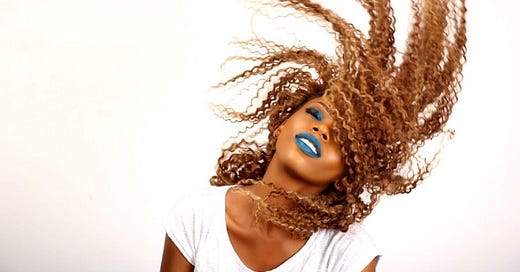My president was black, and my beauty supply store owner was too
The unspoken challenge of being a black beauty supply store owner

For a child born in 2008 or later, it seems perfectly normal to have a black president. Talking to others who were stunned when Barack Hussein Obama won will usually result in them not totally understanding this accomplishment. The same goes for Kamala Harris as the Vice President this year. It’s not that it wasn’t a big deal. But in their world, it’s as normal as having macaroni and sweet potato pie at a Thanksgiving table.
ADVERTISEMENT ~ Amazon
As an Amazon affiliate, I earn a percentage from purchases with my referral links. I know some consumers are choosing to boycott Amazon for its DEI removal. However, after thinking about this thoroughly, I want to continue promoting cool products from small businesses, women-owned businesses and (specifically) Black-owned businesses who still feature their items on Amazon. As of the first date of Black History Month 2025, each new post will ALWAYS include a MINIMUM of one product sold by a Black-owned business. (I have visited the seller’s official site to verify that Amazon Black-owned logo.) I am (slowly) doing this with older, popular posts too. If you still choose to boycott, I 100% respect that decision.

That analogy is the best way I can describe talking to black women about beauty supply stores. The level of discrimination they dealt with just trying to buy hair products didn’t reach my world as a child and into my early 20s. When they walked inside beauty supply stores, eyes and ears were glued to them. Someone was following them around store aisles. Bags were checked behind counters. But in my world, I walked in to see brown faces everywhere, “hey you” finger pointing, head nods and smiles. No one followed me in the aisles (although I did have to leave extra bags behind the counter). Other than that, I roamed around shopping in my happy black girl world.

My neighborhood, along with my elementary school, was predominantly black. I wasn’t obsessed with hair, but my grandmother definitely made it a priority. Every other Saturday, I went to a beauty salon with her from my pre-school years up until high school. It didn’t take long for me to start learning some style tips. By my high school years, I’d walk the three blocks to scoop up hair products from the neighborhood beauty supply store. I knew the owner by face. He was a black man, and all the cashiers, stock workers and sales clerks were black, too. I could walk inside and buy a plethora of black hair care products, knowing I never had to dig for anything. I spent more time pondering on what not to buy versus what I could find.
Recommended Read: “Relaxer risks: Should black women be blaming our beauticians, perm manufacturers or ourselves? ~ Who came up with the four- to six-week rule for perms anyway?”
It wasn’t until I got to college that I started hearing tales of the kind of discrimination black women faced in their own neighborhoods. I had no idea how fortunate I was to experience a totally different energy in a place where pretty much every black woman will frequent. And how ironic is it for someone to own a store primarily catering to your hair texture and supplies for your hair to then treat you like a criminal while you’re inside? This was foreign territory for me.



